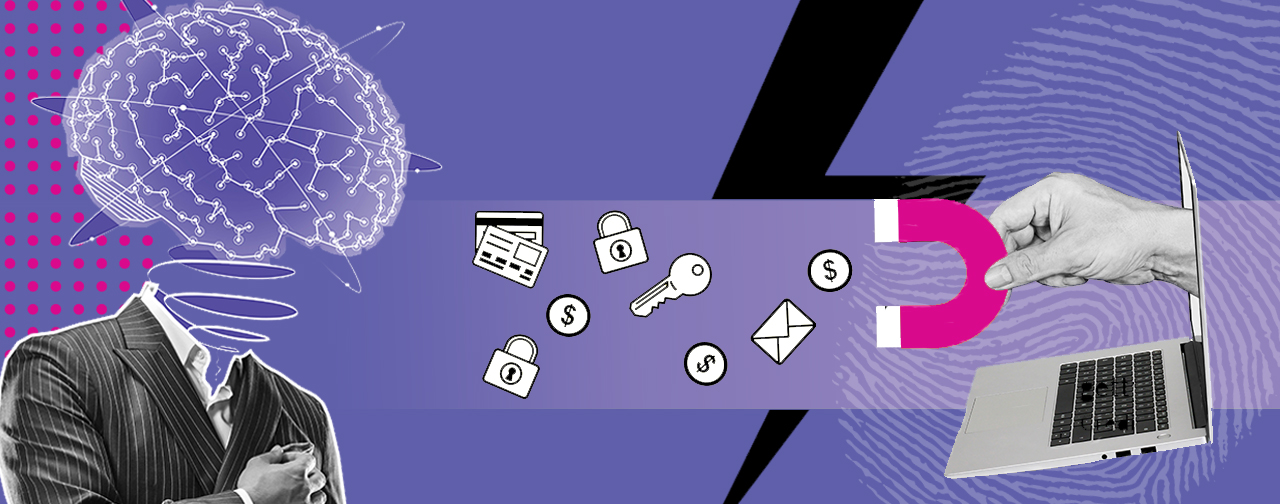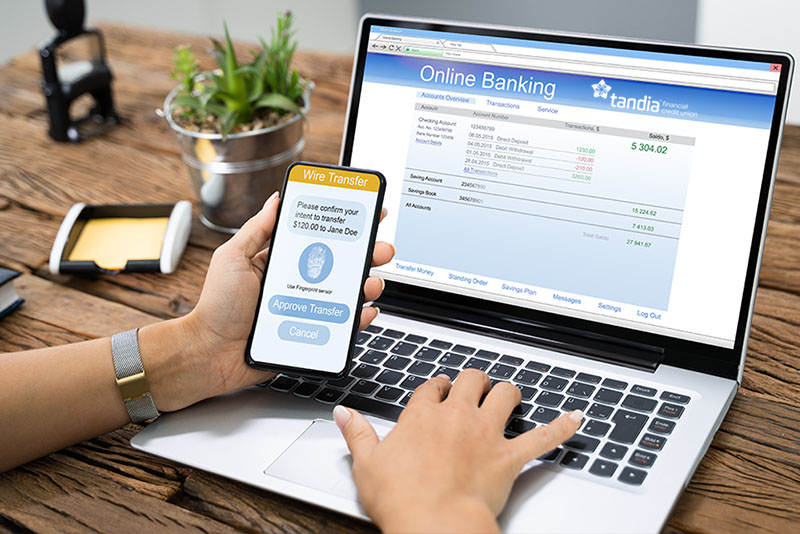FRAUD PREVENTION
Boost Your Fraud-IQ
You’re probably hearing a lot about fraud these days. Why all the buzz? Unfortunately, fraud attacks (especially ones that take place online) are more common than ever before and are happening every single day around the globe. Fraud is something that we all need to take seriously, but don’t panic. Read on to boost your fraud-IQ and gain some essential fraud-busting knowledge that can help you to avoid scams and navigate your financial landscape with ease.
Red Flags: What are some common signs of a scam?
1. Urgency.
If you are being pressured to act quickly, stop and think. Often scammers will make their message feel like an emergency to rush you into making an impulsive decision - such as clicking a link or downloading a file - without checking all of the facts first. If you’re being told to hurry, there could be something fishy (or ‘phishy’) going on.
2. Being asked to provide money in unusual formats.
Gift cards? Cryptocurrencies? Prepaid Credit Cards? These non-standard forms of payment should immediately get your spidey-senses tingling, as scams commonly employ these types of less-traceable transactions. If someone is asking you for these, be wary!
3. Being asked to keep information to yourself.
If you are being asked to keep something confidential, think through what is being asked and from whom. It is in a scammer’s best interest to avoid attracting a lot of eyeballs to their shady tricks, since the odds are that someone would recognize it as a scam. If someone is asking you to keep quiet, stop and think about their motivation.
4. Email or phone requests asking for financial or personal information.
Your bank or credit union would never reach out to you asking for verification info or to confirm financial details they would already have access to. If someone claims to be from your financial institution and is asking for information from you (such as your two-step verification details, SIN number or other personal information), hang up and call your bank or credit union directly using their confirmed phone number instead.
5. An email from an unknown sender that contains a link or attachment.
If you receive an email from someone you don’t know, especially if it contains a link or attachment, be on your guard. Scammers may craft a message that appears legitimate in an effort to get you to click on something – such as a document, website link or photo – in an attempt to get dangerous code running on your device. If you aren’t expecting the email or don’t know the sender, stop and verify legitimacy (such as checking the accuracy of the email address it was sent from) before clicking. Always ignore emails from unknown senders and never interact with any email (even from someone you know) that seems suspicious or makes you question if it is really coming from the person they claim to be.
Reporting a Scam
If you think that you may have been scammed, take action right away by reporting any suspicious activity. You can limit the amount of damage and protect yourself from further loss by reporting the scam quickly.
If you suspect a scam, stop all communication with the scammer and notify your financial institution. Always change your passwords to accounts that may have been compromised, such as social media or email accounts, and put an alert on your credit report by contacting a consumer reporting agency such as Equifax Canada or TransUnion Canada (note that there could be a fee for this service). You can also report the scam to the police or the Canadian Anti-Fraud Centre. For more tips on fraud safety, check out some great resources from the government available HERE and HERE.
In today’s modern world, we all need to take steps to keep ourselves, and our information, safe and secure – especially while online. Protect yourself from getting scammed by following these tips and remember to always trust your instincts. It is better to be safe than sorry.
Think critically and stay safe.







